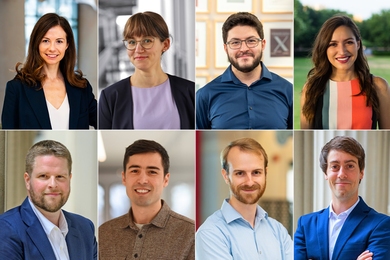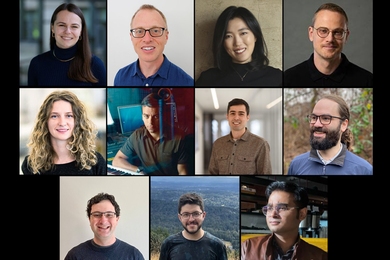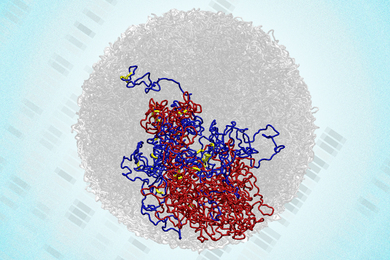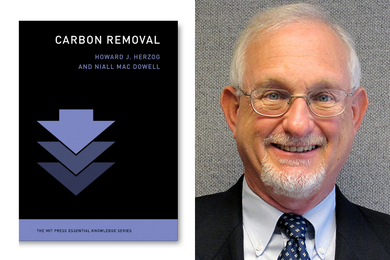As master’s graduate Lisa Rayle (advisor: Chris Zegras) and PhD graduates Travis Dunn (advisor: Joe Sussman) and Angelo Guevara (advisor: Moshe Ben-Akiva) leave MIT this year, they share the experience of having dedicated their thesis research to Portuguese transportation and planning issues, and of collaborating in many ways with Portuguese students, faculty and transport stakeholders thanks to their involvement in the MIT-Portugal Program (MPP) Transportation Systems focus area. MIT-Portugal’s Director of Education Josh Jacobs sat down with the three new MIT graduates to talk about their experience working with Portuguese colleagues and how they see these collaborations continuing in their future careers.
Josh Jacobs: Tell me about the ways in which your research built on the connection to Portugal?
Angelo Guevara: I spent a lot of time working in the Transportation Systems program, both as an instructor and as a researcher. I was a teaching assistant on two occasions in Portugal, with the Technology Planning and Performance Assessment and Transport Economics and Project Evaluation modules. I also shared lab space at MIT with visiting MPP students and interacted in research as part of my involvement with the SOTUR project with students and faculty from Portugal. I also worked to integrate Portuguese data into my thesis project model, on “Endogeneity and Sampling of Alternatives in Spatial Choice Models.” My research was mainly concerned with the implementation of a residential location choice model for the city of Lisbon, which was a component of a larger land-use model built, with other researchers, using an UrbanSim platform. Although in the end the dispersed zoning data across different municipalities was not complete enough to build a fully operational UrbanSim model, some valuable results were obtained.
Travis Dunn: My thesis focused on improving our understanding of the relationship between institutional structures and infrastructure investment patterns, and it relied on a range of data requirement — both quantitative and qualitative — from a variety of Portuguese sources. While it’s true that data in Portugal can be hard to put together, like they are anywhere, I found one of the most powerful experiences was in spending significant time in Portugal, and following the contacts I made through faculty and other grad students at IST to the people that manage the data. My process and results were definitely influenced by being present in Portugal to understand the perspectives of researchers and transportation practitioners.
Lisa Rayle: Yes, for sure Skype is no substitute for being there in person. My research on inter-agency collaboration in metropolitan planning relied on my doing in-person interviews with policymakers and other figures within the Portuguese urban planning community. I could not have done the work without being in Portugal. Still, at first it was difficult to find the right contacts and it took a long time to get interviews. But eventually I found ways to meet with the right people and was able to get very good information from the interviews. My only regret is that I did not have the chance to really learn Portuguese. Although most of the people I worked with spoke English well, I’m sure that my work would have been easier if I had known Portuguese.
JJ: How do you see your work in the MIT-Portugal Program continuing to impact your career after you leave MIT?
TD: I found Portugal to be fascinating and I think more people around the world should know about its policy approaches and challenges in the area of transportation planning. I’ll spend another few months finishing up some research projects at MIT and then begin a Fulbright scholarship working in the Mexican Ministry of Transportation, where I’m sure I will apply some of the lessons I’ve learned in Portugal. I think the most enduring aspect of this experience for me will be the friendships and collaborative relationships I’ve formed with Portuguese students, which I’m sure will continue.
LR: The Portuguese setting turned out to be a very good case for my study of collaborative issues in planning. From my conversations with many Portuguese students, I think that this program has helped build a new generation working in transportation that is committed to an international perspective, and that is exposed to MIT’s ideas and distinctive ways of collaborating in research. As a planner, I think international collaboration is essential, especially for research, and I can’t imagine not having similar relationships in the future. This was definitely a good learning experience in that light.
AG: The network of professional and personal relationships I formed will continue to be important for me in the future even if it doesn’t lead to immediate collaborations. I will return to the Universidad de los Andes in Santiago, Chile, later this summer as a research professor. I am hopeful that my long-term connection to Portugal will allow me to apply my model to Portuguese data sets eventually.
Josh Jacobs: Tell me about the ways in which your research built on the connection to Portugal?
Angelo Guevara: I spent a lot of time working in the Transportation Systems program, both as an instructor and as a researcher. I was a teaching assistant on two occasions in Portugal, with the Technology Planning and Performance Assessment and Transport Economics and Project Evaluation modules. I also shared lab space at MIT with visiting MPP students and interacted in research as part of my involvement with the SOTUR project with students and faculty from Portugal. I also worked to integrate Portuguese data into my thesis project model, on “Endogeneity and Sampling of Alternatives in Spatial Choice Models.” My research was mainly concerned with the implementation of a residential location choice model for the city of Lisbon, which was a component of a larger land-use model built, with other researchers, using an UrbanSim platform. Although in the end the dispersed zoning data across different municipalities was not complete enough to build a fully operational UrbanSim model, some valuable results were obtained.
Travis Dunn: My thesis focused on improving our understanding of the relationship between institutional structures and infrastructure investment patterns, and it relied on a range of data requirement — both quantitative and qualitative — from a variety of Portuguese sources. While it’s true that data in Portugal can be hard to put together, like they are anywhere, I found one of the most powerful experiences was in spending significant time in Portugal, and following the contacts I made through faculty and other grad students at IST to the people that manage the data. My process and results were definitely influenced by being present in Portugal to understand the perspectives of researchers and transportation practitioners.
Lisa Rayle: Yes, for sure Skype is no substitute for being there in person. My research on inter-agency collaboration in metropolitan planning relied on my doing in-person interviews with policymakers and other figures within the Portuguese urban planning community. I could not have done the work without being in Portugal. Still, at first it was difficult to find the right contacts and it took a long time to get interviews. But eventually I found ways to meet with the right people and was able to get very good information from the interviews. My only regret is that I did not have the chance to really learn Portuguese. Although most of the people I worked with spoke English well, I’m sure that my work would have been easier if I had known Portuguese.
JJ: How do you see your work in the MIT-Portugal Program continuing to impact your career after you leave MIT?
TD: I found Portugal to be fascinating and I think more people around the world should know about its policy approaches and challenges in the area of transportation planning. I’ll spend another few months finishing up some research projects at MIT and then begin a Fulbright scholarship working in the Mexican Ministry of Transportation, where I’m sure I will apply some of the lessons I’ve learned in Portugal. I think the most enduring aspect of this experience for me will be the friendships and collaborative relationships I’ve formed with Portuguese students, which I’m sure will continue.
LR: The Portuguese setting turned out to be a very good case for my study of collaborative issues in planning. From my conversations with many Portuguese students, I think that this program has helped build a new generation working in transportation that is committed to an international perspective, and that is exposed to MIT’s ideas and distinctive ways of collaborating in research. As a planner, I think international collaboration is essential, especially for research, and I can’t imagine not having similar relationships in the future. This was definitely a good learning experience in that light.
AG: The network of professional and personal relationships I formed will continue to be important for me in the future even if it doesn’t lead to immediate collaborations. I will return to the Universidad de los Andes in Santiago, Chile, later this summer as a research professor. I am hopeful that my long-term connection to Portugal will allow me to apply my model to Portuguese data sets eventually.








